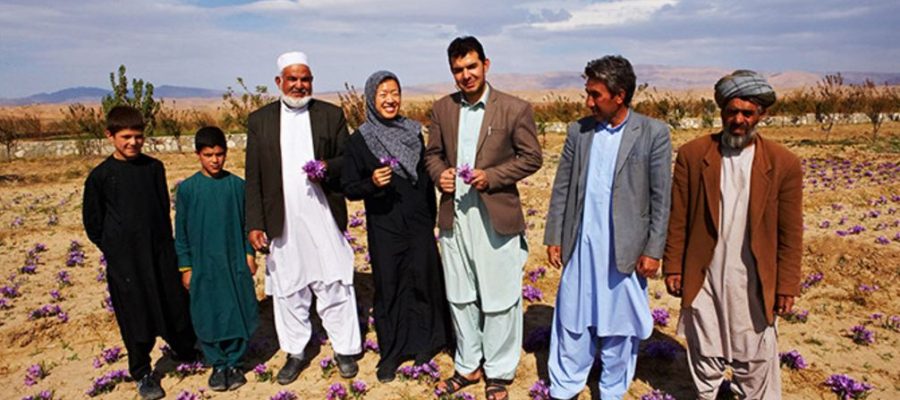At first glance, Rumi Spice seems like a trendy company. Like brands that have embraced sauces like sriracha or superfoods like acai, Rumi Spice’s focus on saffron seems like food innovation designed to carve out a niche space in the food industry. But that’s not the case. The company’s embrace of Saffron offers more than just unique flavoring for your next meal. It’s changing the business landscape of Afghanistan.
Kimberly Jung and Emily Miller both served army tours in Afghanistan and were working on MBAs at Harvard’s competitive business school. Their friend and fellow veteran Keith Alanzi mentioned that he’d met a saffron farmer while on his last tour. That farmer needed help getting his unique product to the global market. And just like that, Jung, Miller and Alanzi knew how they could help.
They’d all seen the businesses that were funding the Taliban. There weren’t many farmers like the one they were trying to help. There were several farmers focused on opiate crops because they yielded the greatest return. Those same farmers were leery about switching to non-narcotic crops because they didn’t pay as well. Saffron presented an option that canceled the need for narcotics and yielded the greatest possible return—7 times what they’d previously made from opiate crops.
The operation started out small. In 2014, Rumi Spice worked with 11 farmers from Herat, Afghanistan. Two years later, they were teaching 60 farmers how to improve efficiencies and expand their businesses. They’d also hired 300 local women to help pick the crop when it was in season.
So, why saffron? Well, though it’s not wildly popular in the United States, it’s one of the most popular spices in Africa, Asia and the Middle East. It’s a delicacy and sells for upwards of $3,000 per kilogram. It’s favored by chefs for its floral notes, and it’s notably used in pastas and paellas.
Rumi Spice has helped to ensure that these farmers reap the huge benefits of getting this luxury spice to market. But more than generating a profit, Jung, Miller and Alanzi hope this saffron initiative can lead to a more a peaceful Afghanistan, and in turn, a more peaceful world.
“We’re in this because we believe that connecting Afghan farmers to the international marketplace is something that’s worth fighting for…it’s worth fighting for everyone’s future and then it makes economic sense,” Jung said in an interview with Chicago Tonight.
To find out more about Rumi Spice, visit www.rumispice.com where you can keep with the latest developments and stock up on your own supply of saffron.

